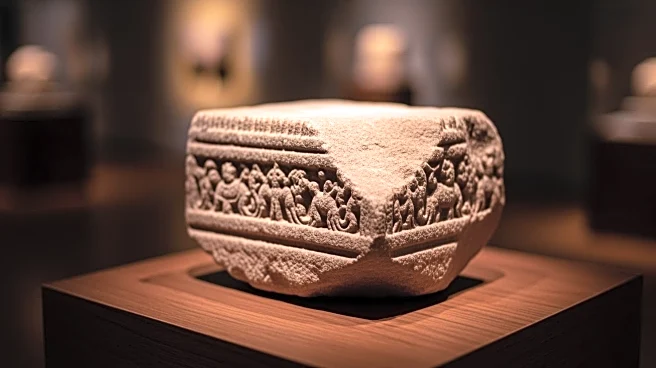What is the story about?
What's Happening?
Researcher Dan Buettner has identified five regions around the world, known as 'Blue Zones', where people commonly live past 100 years. These regions include Loma Linda in California, Nicoya in Costa Rica, Sardinia in Italy, Ikaria in Greece, and Okinawa in Japan. Buettner's research, conducted with a team of scientists, anthropologists, and demographers, highlights shared lifestyle traits among these populations. Key habits include natural movement, a sense of purpose, stress management, plant-based diets, and strong social connections. These findings suggest that lifestyle choices, rather than genetics, play a significant role in longevity.
Why It's Important?
The identification of lifestyle habits that contribute to longevity has significant implications for public health and wellness. By adopting practices observed in Blue Zones, individuals can potentially extend their lifespan and improve their quality of life. This research challenges the notion that genetics are the primary determinant of longevity, emphasizing the impact of daily habits. The findings could influence health policies and encourage the promotion of lifestyle changes that prioritize natural movement, stress reduction, and plant-based diets. This shift could lead to a decrease in chronic diseases and healthcare costs, benefiting society as a whole.
What's Next?
The insights from Blue Zones may lead to increased interest in lifestyle interventions aimed at promoting longevity. Health organizations and policymakers might consider integrating these findings into public health strategies. Additionally, individuals and communities may seek to emulate the habits of Blue Zones, potentially leading to a cultural shift towards healthier living. Further research could explore how these practices can be adapted to different cultural contexts, ensuring broader applicability and impact.
Beyond the Headlines
The emphasis on lifestyle over genetics in determining longevity raises ethical and cultural questions about personal responsibility for health. It challenges the healthcare industry to focus more on preventive measures and lifestyle education. Moreover, the cultural aspects of Blue Zones, such as strong social connections and a sense of purpose, highlight the importance of community and mental well-being in overall health. These findings could inspire a reevaluation of how societies prioritize and support holistic health practices.















